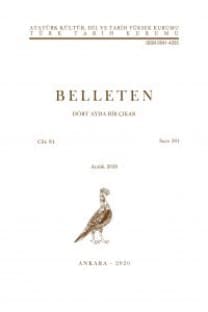Bulgaristan'da Prenslik Döneminde Türklerin Sosyal ve Siyasal Kurumlaşma Çalışmaları
1877-78 Osmanlı-Rus Savaşı'nın sonunda imzalanan Berlin Antlaşması ile Osmanlı Sultanına bağlı, Bulgaristan Prensliği ve Doğu Rumeli Vilayeti kuruldu. Prenslik yaklaşık olarak bugünkü Bulgaristan coğrafyasının Tuna nehri ile Balkan Dağları arasındaki kısmını, Vilayet ise Balkan Dağları'nın güneyinde kalan yerleri kapsıyordu. Bulgaristan Türkleri için yeni bir dönem başlamıştı. Yüzyıllardır sahibi ve hâkimi olarak üzerinde yaşadıkları topraklarda artık bir azınlık olarak varlıklarını sürdürmek durumundaydılar. Bu yeni statülerine hiç mi hiç hazırlıklı değillerdi. 1877-78 Harbi'nde öldürülenler ve canlarını kurtarmak için Anadolu'ya göçmek zorunda kalanlardan dolayı nüfusları yarı yarıya azalmıştı. İdareciler, askerler, varlıklı kesim, aydınlar ve seçkin din adamları bu topraklardan kaçmak zorunda bırakılırken geriye fakir, cahil, hakkını aramasını bilmeyen, kendi tabirleri ile "başsız bir gövde" kalmıştı.
Efforts by the Turkish Population of Bulgaria in the Principality Era toward Social and Political Organization
Muslims constituted 27% of the population of the Bulgarian principality established in the wake of the Russo-Ottoman war of 1877-8 in Eastern Rumelia. Those who had for centuries been the masters and rulers now were obliged to maintain their existence as a minority group. They were wholly unprepared for their new status. The present article examines the position of the Turks and/or Muslims during what is here termed the Principality period of Bulgaria between 1878 and 1908. Aspects surveyed comprehend the restrictions imposed on their right to be candidates for office and voting rights and the obstacles confronted in the elections for deputies and local administrators. The discussion goes on to present those who managed to become elected despite the difficulties and to what extent they were able to come into possession of their rights. In conclusion, this piece treats of their efforts to coalesce as a political group in the context of the educational and supporting associations established by themselves and their activities.
